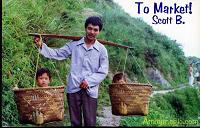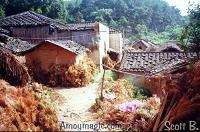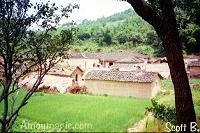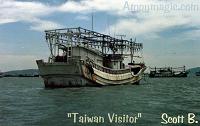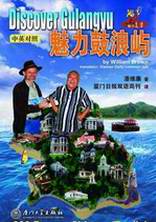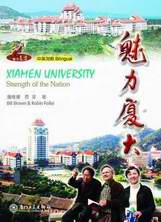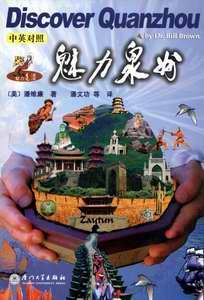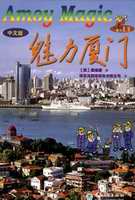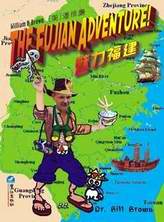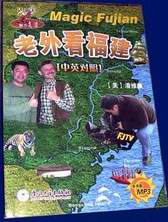![]() Click
to
Access
Click
to
Access
OUTSIDE China
![]() Click
to Access
Click
to Access
INSIDE
China ![]()
TRAVEL LINKS
![]() Xiamen
Xiamen
![]() Gulangyu
Gulangyu
![]() Jimei
Jimei
![]() Tong'an
Tong'an
![]() Jinmen
Jinmen
![]() Zhangzhou
Zhangzhou
![]() Quanzhou
Quanzhou
![]() Wuyi
Wuyi
![]() #1Fujian
Sites!
#1Fujian
Sites!
![]() Fujian
Foto Album
Fujian
Foto Album
![]() Books
on Fujian
Books
on Fujian
![]() Readers'Letters
Readers'Letters
![]() Ningde
Ningde
![]() Zhouning
Zhouning
![]() Longyan
Longyan
![]() Sanming
Sanming
![]() Putian
Putian
![]() Bridges
Bridges
![]() Travel
Info,
Travel
Info,
![]() Hakka
Roundhouses
Hakka
Roundhouses
![]() Travel
Agents
Travel
Agents
MISC. LINKS
![]() Amoy
People!
Amoy
People! ![]()
![]() Darwin
Driving
Darwin
Driving ![]()
![]() Amoy
Tigers
Amoy
Tigers
![]() Chinese
Inventions
Chinese
Inventions
![]() Tibet
in 80 Days!
Tibet
in 80 Days!![]()
![]() Dethroned!
Dethroned!
![]()
![]() Misc.Writings
Misc.Writings
![]() Latest
News
Latest
News
![]() Lord
of Opium
Lord
of Opium
![]() Back
to Main Page
Back
to Main Page
![]() Order
Books
Order
Books![]() Xiamenguide
Forum
Xiamenguide
Forum 
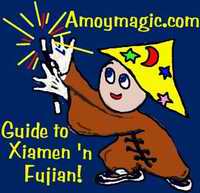
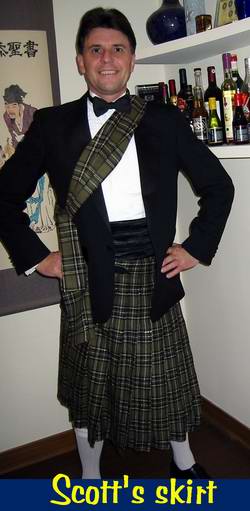
...Intro
(or Warning!) about Mr. Scott Ballantyne (formerly of Xiamen ABB)
This
page's contents copyrighted 2004 by Scott Ballantyne
![]() Scott's
1st Xiapu Adventure!
Scott's
1st Xiapu Adventure!![]() Scott's
#4 Xiapu Adventure! 1996
Scott's
#4 Xiapu Adventure! 1996![]() Scott's
5th Xiapu Adventure! Scott's Quanzhou
Adventure!
Scott's
5th Xiapu Adventure! Scott's Quanzhou
Adventure!![]() Scott's
Photos!
Scott's
Photos!
1st...Congratulations! Scott
& Penny just had a daughter! Since Scott is Scottish and wears a kilt,
I wonder if his daughter will be the ones to wear the pants in the family?
Click Here for Leona Photo #1 ...
. Photo #2
Scott wrote:
She was born
at 4:22 on 14. 04. 2004 (lucky numbers 422042004). She weighed in at 2.8Kg
(about 6 lbs) and was 47cm tall. So far no name - it's her bloody fault,
she came 20 days later so she will have to wait for a name (probably the
only time in a female's life when they are early).
They named her Leona. Scott said it was because the name sounded good
in both Chinese & English, and went with Ballantyne. Leona Ballantyne--sounds
good to me!
Mr. Scott Ballantyne,
one of Xiamen’s most colorful characters, and apparently as determined
as I am to live out his remaining days on this enchanted island, has long
raved about the joys of Xiapu. It has been a full two years since ABB
Company’s master salesman promised to write this story for me, but
he didn’t send it to me until a week before the book’s deadline.
But I can understand the delay.
Scott, after all, is from England, not America, and so he probably had
a tough time composing an article in “standard English.”
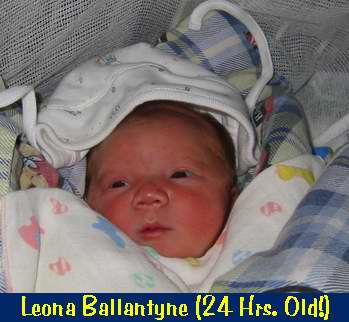
For example, the poor man still puts a “u” in “color.”
And on top of that he’s Scottish. Though that’s
a comfort, because being from California I have a rather biased perception
of men who wear skirts (or “kilts,”
as the Scots call them).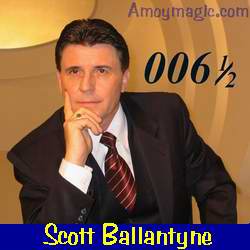
Not that anyone could mistake Scott for that kind of fellow. A former
announcer for BBC, he sounds like and looks like a British lady’s
man (if this photo doesn’t remind you of 007, he should at least
get a rating of 006.5).
Fortunately,
Scott finally settled down and married Penny, a beautiful Chinese lass,
and left a lot of broken hearts in his wake.
Well, enough about ABB’s Mr. Ballantyne. Here is Xiapu from the
perspective of a true adventurer!
My Xiapu Adventure
By Scott Ballantyne, ABB, Xiamen
1995, Wednesday, 6th December. 9:55am. Xiamen Long Distance Bus Depot, Hubin Nan Lu.
I had been in Xiamen, or China – then, it was the
same for me - for all of 14 weeks. Now, I felt confident enough to make
my first solo journey; after all, I had learned how to say, ‘Hello,’
‘Thank you,’ and ‘One bottle of beer,’ in Chinese
(I had not yet learned how to ask for cold beer so I got whatever came!)
I was standing with one of my favorite students, Catherine, whose job
it was to make sure I got on the right bus to Xiapu, and not to London,
and she was a great encouragement.
‘The bus is a lot safer than it looks,’ she assured me, with
a half-smile.
The bus looked, from the outside, like it had seen a few thousand journeys
too many. I was dreading the inside. I had an 18 hour trip in this thing
before I got to Xiapu. I was regretting my adventurous nature, and I wasn’t
on the bus yet. It was one of those ‘sleeper’ buses –
that meant that it had two tiers of reclining bed/seats, but not reclining
enough to allow comfortable sleep.
As I stepped inside the bus, the first noticeable thing was the smell.
I could not be sure if it was one one-week-old fish, or one-day-old vomit.
After an hour of traveling, I realized it was probably both. The bus left
at 10am prompt; by 11am, we had hardly got off the tiny island of Xiamen.
It was not full, but the driver stopped every half-mile or so to try to
tempt anyone standing even close to the side of the road to join us, for
a long-negotiated fee, to Xiapu or any point in between.
Apart from the ill-fitting windows, the bus was more comfortable that
I had expected. In Xiamen, it was a very clear, sunny day, but one of
those rare days when the temperature drops below +10C. This day it plummeted,
not dropped, below. We were heading north and into colder weather. By
6pm, eight hours later, we had reached Fuzhou. (Today, with the new highway,
it takes only 3 hours!).
It was dark by the time we started to climb the winding mountain roads
beyond Ningde on our way into the north-east corner of Fujian Province.
As the bus climbed, the temperature dropped; as the bus climbed the windows
slid backwards, and open. The freezing breeze chapped and dried my lips.
When the bus found a bit of downhill, the windows slid forward and open,
and the breeze bit at the back of my neck, making it stiff. I wrapped
myself in everything I could find, including newspapers and orange peel,
but to no avail.
When I got to Xiapu, I was scheduled to meet one Charles Etner, anthropologist
from Stanford University, who had been studying in the area for 8 months.
He had given me a piece of paper with some useful phrases in Chinese,
like, ‘Where is the W.C.?’ (very useful); ‘Why have
we stopped?’ (not that I would understand the answer) and ‘Has
the bus broken down?’ (something I thought I could figure out for
myself, but nonetheless alarming that he had thought to write it down,
especially on these remote mountain roads with no light to be found other
than from the myriad of clear stars). Another of his phrases was, ‘Is
this Xiapu bus depot?’
The bus stopped at 4 A.M. in the middle of a busy market street - and
I mean busy. It looked nothing like a bus depot. I pointed continually
at the phrase on my piece of paper, and the driver, and his assistant
and his assistants’ assistant’s girlfriend nodded convincingly
and spoke confusingly, all at the same time.
I hesitantly stepped off the bus and found myself in what appeared to
be the main street (turned out to be the second main street), which had
lots of people, all Chinese, going back and forth delivering & selling
fruit and vegetables, river crabs and other swimming (or once-swimming)
things. I later learned that the early morning scene was an everyday event
as the peasants came down from the mountains to sell their wares to market
vendors who resold them in town a few hours later.
Alone and bewildered and finding no-one who closely resembled the long-haired,
six foot, anthropologist from Stanford University, I started to cry. Not
really, but I think I was close.
Eventually, I felt a tug at my sleeve and turned to see an attractive
Chinese woman, aged about 25. She was pulling me and saying ‘Mr.
Eye, Mr. Eye’ and beckoned me to follow her. ‘One of Diana’s
ladies,’ I thought (for those not blessed with an education in the
classics, please read, ‘a lady of the night’ for that last
quote). As I looked around at the millions of Chinese who were staring
at this rare site of a foreigner (the second that most of them had seen,
the first for the rest), I noticed that they seemed to be encouraging
me to co-operate with the lady. Well … she was pretty, so I followed
her.
She took me, through the freezing morning, to a small street stall restaurant.
I was seated beside two locals who were warding off the cold with heated
alcohol – which they offered me, and I took, which is how I know
it was heated and alcohol!
The owner of this street establishment, a large but friendly lady, proudly
and ceremoniously placed a plate of mini-armadillos in front of me, which
I think I was expected to eat. I couldn’t imagine how to start on
them – how do you eat an armadillo with your bare hands? I didn’t
even know if it was cooked. So she quickly and deftly showed me how to
peel the food. It turned out to be what is now my favourite seafood –
Sha Gu – (meaning, aunt of the prawn), but then it was dark, I was
too cold to be paying attention, and I consumed bits that even Chinese
turn their noses up at.
Half an hour later, Charles Etner, anthropologist, rescued me, which was
a shame really as I was quite getting used to the armadillos as well as
the two ladies in my company – we will not talk about the heated
alcohol (known as Me Jiou). He apologized for his tardiness, drunken condition
and for leaving me in the company of the pretty lady, who turned out to
be the English Language teacher in the local Minority School. ‘Lady
of the Night?’ Did I say that??
He then assured me that we would soon be tucked up, out of the cold, in
his room, in which, for the occasion, he had left the heating on. He bundled
me onto a manpowered tricycle taxi which spent 30 seconds on tarmac roads
and 30 minutes on uneven, non-roads. Eventually, we arrived at Xiapu No
1 Minority School, where, in exchange for a bit of teaching, they gave
Mr. Etner an old classroom with two single beds and a table – no
toilet, no sink. AND NO HEATING. I was freezing.
‘Where’s the heating?’ I asked.
‘There,’ he said, pointing at the naked 40 watt light bulb,
‘I left it on to heat up the room.’ I slept fully clothed
that night, under about six blankets.
Charles, or Mr. Eye, as all around called him, had but three days left
in Xiapu before returning to the USA, perhaps never to return to China.
I stayed with him during those final days and watched him, and many others,
cry as the bus left for Xiamen on his final afternoon there. He had spent
a wonderful eight months in Xiapu and was very reluctant to leave. I had
spent three days there and felt the same. Why? Because it is a beautiful
place? Not at all. Quite simply, because of the wonderful, friendly, and
the open people, who took us both into their hearts.
I returned to Xiapu many times and it changed my life. Xiapu gave me one
of the most satisfying experiences of my life. And over ensuing visits,
I was also able to dramatically, positively change the lives of many people
there, and their descendants’ lives. How?
You’ll have to buy Bill Brown’s next book to find that out,
or wait until I write one.
Scott Ballantyne.
Click Here for Scott's
Travelogue #4--Xiapu Revisited (1996)
Back to Top AmoyMagic Guide to Xiamen and Fujian
![]() Favorite
Fujian Sites
Favorite
Fujian Sites ![]() Fujian
Foto Album
Fujian
Foto Album ![]() Xiamen
Xiamen
![]() Gulangyu
Gulangyu
![]() Fujian
Guides
Fujian
Guides ![]() Quanzhou
Quanzhou
![]() Zhangzhou
Zhangzhou
![]() Longyan
Longyan
![]() Wuyi
Mtn
Wuyi
Mtn ![]() Ningde
Ningde
![]() Putian
Putian
![]() Sanming
Sanming
![]() Zhouning
Zhouning
![]() Taimu
Mtn.
Taimu
Mtn. ![]() Roundhouses
Roundhouses
![]() Bridges
Bridges
![]() Jiangxi
Jiangxi
![]() Guilin
Guilin
![]() Order
Books
Order
Books
![]() Readers'
Letters
Readers'
Letters
Last Updated: May 2007
![]()
DAILY
LINKS
![]() FAQs
Questions?
FAQs
Questions?
![]() Real
Estate
Real
Estate
![]() Shopping
Shopping
![]() Maps
Maps
![]() Bookstores
Bookstores
![]() Trains
Trains
![]() Busses
Busses
![]() Car
Rental
Car
Rental
![]() Hotels
Hotels
![]() News
(CT)
News
(CT)
![]() Medical
& Dental
Medical
& Dental
![]() YMCA
Volunteer!
YMCA
Volunteer! ![]()
![]() XICF
Fellowship
XICF
Fellowship
![]() Churches
Churches
![]()
![]() Expat
Groups
Expat
Groups
![]() Maids
Maids
![]() Phone
#s
Phone
#s
EDUCATION
![]() Xiamen
University
Xiamen
University
![]() XIS(Int'l
School)
XIS(Int'l
School)
![]() Study
Mandarin
Study
Mandarin
![]() CSP(China
Studies)
CSP(China
Studies)
![]() Library
Library
![]() Museums
Museums
![]() History
History
DINING
![]() Restaurants
Restaurants
![]() Asian
Asian
![]() Veggie
Veggie
![]() Junk
Food
Junk
Food
![]() Chinese
Chinese
![]() Italian
Italian
![]() International
International![]()
![]() Visas
4 aliens
Visas
4 aliens
RECREATION
![]() Massage!
Massage!
![]() Beaches
Beaches
![]() Fly
Kites
Fly
Kites
![]() Sports
Sports
![]() Boardwalk
Boardwalk
![]() Parks
Parks
![]() Pets
Pets
![]() Birdwatching
Birdwatching
![]() Kung
Fu
Kung
Fu ![]() Hiking
Hiking
![]() Music
Events
Music
Events
![]() Festival&Culture
Festival&Culture
![]() Humor&
Humor&![]() Fun
Fotos
Fun
Fotos![]()
BUSINESS
![]() Doing
Business
Doing
Business
![]() Jobs!(teach/work)
Jobs!(teach/work)
![]() Hire
Workers
Hire
Workers
![]() Foreign
Companies
Foreign
Companies
![]() CIFIT
(Trade Fair)
CIFIT
(Trade Fair)
![]() MTS(Translation)
MTS(Translation)
![]()
Back to Top
